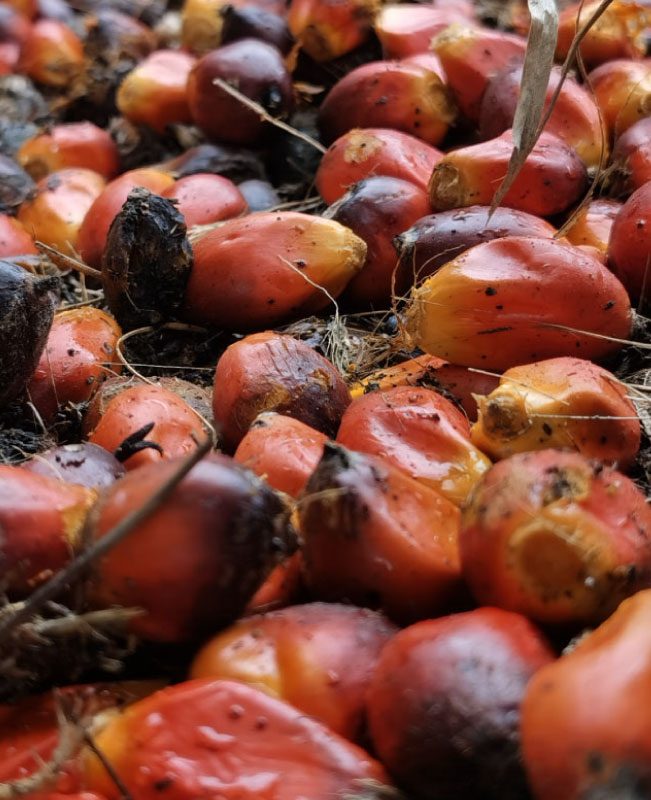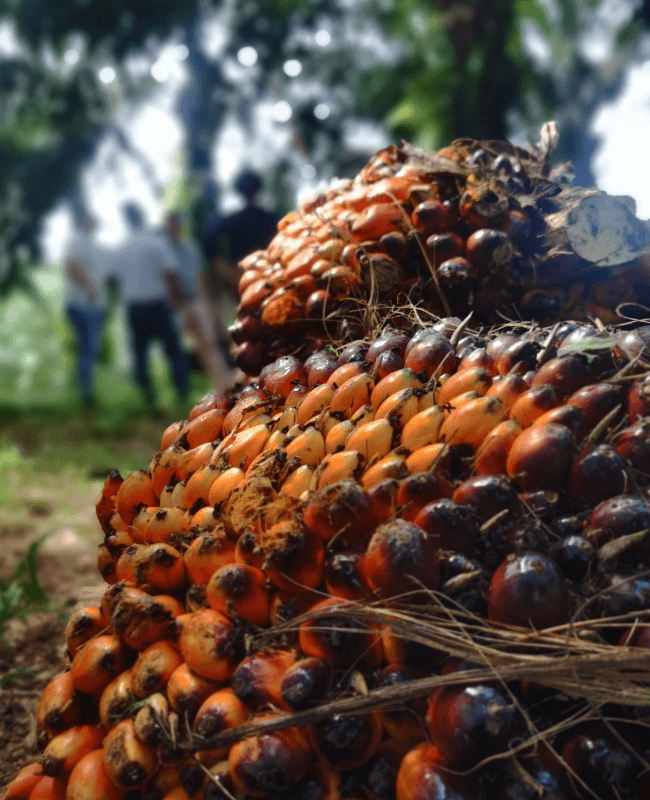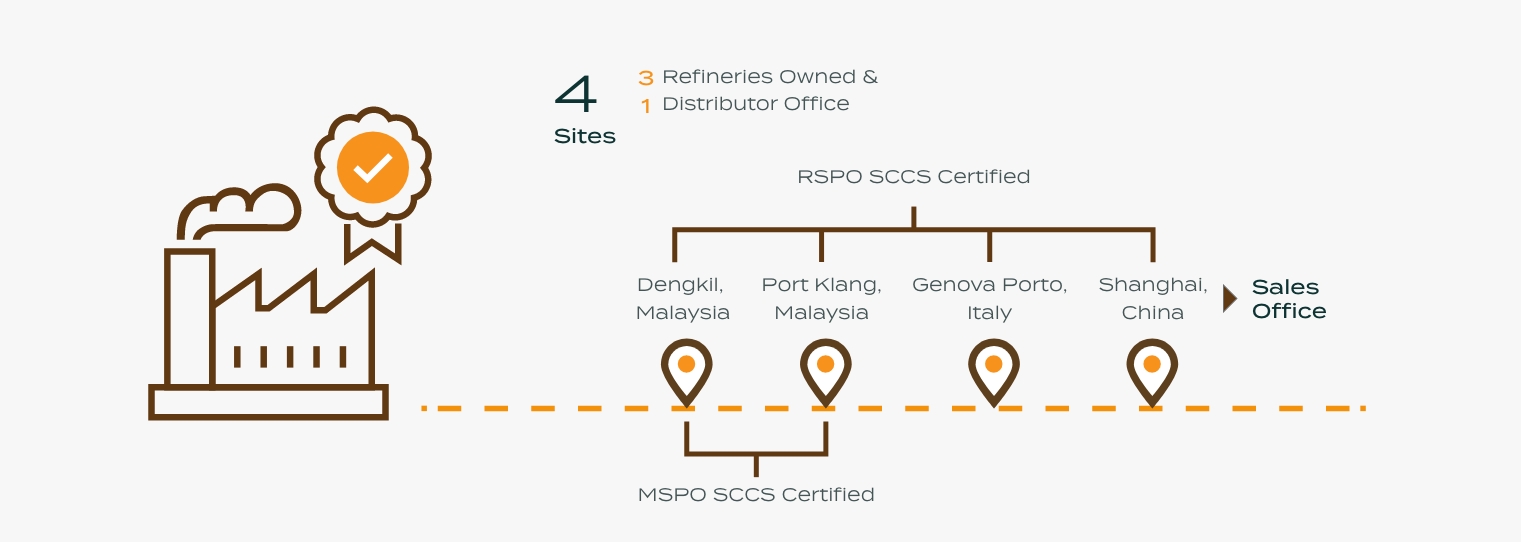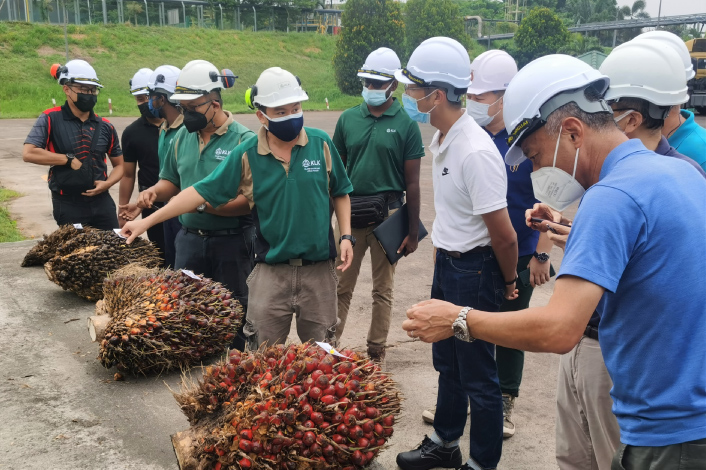About Traceability
Tracing Our Palm Oil Products To Their Origins

Traceability in the palm oil industry is defined as the possibility to chronologically trace the palm oil products over the supply chain to all its sources. Achieving traceability to our palm oil sources is the first step to create a more sustainable palm oil industry.
Sustainability Dashboard
Since June 2018, ISF has been publishing our Sustainability Dashboard quarterly to chart progress against our commitments detailed in the Sustainable Palm Oil Policy with the aim towards a fully sustainable palm oil industry. Our Dashboard summarises our direct and indirect suppliers, certifications, certified volumes, sources of origin, and traceability to mills and plantations.
Mill List
Consistent with our Sustainability Dashboard, ISF’s mill lists are published quarterly that include our Crude Palm Oil (CPO) suppliers, Crude Palm Kernel Oil (CPKO) suppliers, and the indirect supplying mills they are sourced from. Our mill lists contain information of the supplying mills that fulfill the minimum requirements of the Traceability to Mill (TTM) following our Traceability Protocol.
Traceability to Mills and Plantations

Traceability to Mills (TTM) is the method of tracing all palm oil mills that supply to ISF within our supply chain. We have achieved 100% TTM since 2018 and have published our CPO and CPKO mill lists quarterly with the required TTM information:
- Mill name and its parent company name
- Universal Mill List (UML) number
- GPS coordinates
- Mill certification status
- Type of certified volume supplied
Traceability to Plantations (TTP) requires tracing our supplies to sources that supply to our mill level, including constantly changing origins such as smallholder farmers, dealers, collection centres, and owned or third-party estates. We work regularly with our suppliers to collect the required information for TTP and aim to achieve 100% TTP for both our CPO and CPKO sources by 2025.
Our TTP figures from our Traceability Dashboard are calculated using our TTP data collected based on the definitions as defined by our Traceability Protocol.
ISF’s Traceability Protocol
ISF’s Q4 (October - December 2023) Traceability Dashboard

Traceability To Mill
Palm Oil
Palm Kernel Oil
Traceability to Plantations
Palm Oil
Palm Kernel Oil
Source of origin
Peninsular Malaysia
East Malaysia
Palm Oil

Palm Kernel Oil
Palm Oil

Palm Kernel Oil
Certified Volume Sourced
Palm oil
- RSPO Certified
- Conventional
Palm Kernel oil
- RSPO Certified
- Conventional
NDPE Implementation Reporting Framework
(NDPE IRF)
Being a member of the Palm Oil Collaboration Group (POCG), ISF utilises the NDPE Implementation Reporting Framework (NDPE IRF) tool to monitor NDPE compliance and commitments of our suppliers in the supply chain. The NDPE IRF tool is developed by Proforest with the support of various members of the palm oil sector, including producers, traders, manufacturers, retailers, and other refiners. The tool helps companies to systematically understand and track progress in delivering NDPE commitments in their palm oil supply chains, specifically in identifying gaps and driving improvements for both traceability and transparency.
We are currently monitoring the NDPE compliance of our suppliers using the No Deforestation and No Peat profiles. We publish our NDPE IRF profiles half-yearly based on a group level to monitor our progress towards a deforestation-free supply chain relating to the targets and implementation progress of our Sustainable Palm Pil Policy.
ISF’s NDPE IRF Profiles (Updated December 2022)
European Union Deforestation Regulations
(EUDR)
ISF is well aware of the upcoming European Union Deforestation Regulations (EUDR) which places requirements of minimising consumption of products coming from supply chains associated with deforestation or forest degradation into the EU market. One of the traceability-related requirements includes demonstrating that there is no deforestation in a specific sourcing location.
ISF is actively working with all stakeholders in our supply chain, including suppliers and customers to arrange necessary measures for complying with upcoming EUDR requirements.
Supplier Risk Assessment
100% of our palm suppliers are assessed by our consultant Proforest through the NDPE Implementation Reporting Framework (NDPE IRF) tool, which includes risks on primary forests, peat degradation, protected areas, and fires.







